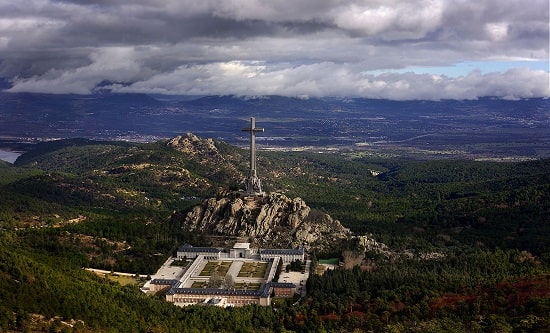
On 10 November, Spain will hold its fourth election in four years, after the country’s centre left Socialist Party (PSOE), which won the most seats in April’s poll, failed to form a coalition government. The deadlock reflects the increasingly fractured nature of Spanish politics in the face of looming economic crisis and continuing austerity. ELIAS HADDAD reports.
What is clear is that the two-party dominance of the PSOE and conservative Partido Popular (PP) that has existed since the end of Franco’s dictatorship in 1975 no longer exists. Smaller parties such as the left-wing electoral bloc Unidas Podemos (UP), which includes the Podemos party and the right wing Ciudadanos have emerged and wielding significant influence. Meanwhile in Catalonia, the regional parties that were once useful allies for PSOE and PP are now pushing for independence. More recently, the fascist elements in the conservative PP have come out to support Vox, a party that openly praises former dictator Franco.
While the acting Prime Minister, PSOE leader Pedro Sanchez, seems to be the favourite candidate, he failed, after months of negotiation, to form a stable government after the April election largely because the PSOE refused to enter into partnership with Podemos on the left, and was shunned by Ciudadanos on the right. In the media, the PSOE managed to paint Podemos as ambitious and power-thirsty, pushing for unacceptable demands. However, Podemos had gone to great lengths to find a compromise, moderating and dropping various proposals. The PSOE is too tied up with Spain’s banks and corporations and the EU to be willing to move further left.
As we reported in October 2018 (‘Spain: New president offers no respite from austerity’) Pedro Sanchez came to power in a vote of no confidence against the conservative PP. In 2018, the problems of austerity, corruption, censorship of criticism against the state and the Catalan crisis discredited the ruling conservatives to the point where the PSOE managed to bring together enough parties in parliament. However, it was unable to pass a budget, as Catalan nationalist politicians demanded the release of political prisoners as a precondition for supporting any of Sanchez’s policies.
In the lead-up to the April election, the PSOE attempted to pose as a genuine left-wing party. With support from UP, it implemented a series of popular anti-austerity policies, including. raised the minimum wage from €735 to €900 and increasing pensions The Open Arms migrant ship was allowed to dock in Spain after being refused entry by Italy, and Sanchez announced that Franco’s remains, would be moved from the gigantic state-funded mausoleum in which they resided and which had become a shrine for fascist groups.
Yet after the April elections the PSOE reverted to its old social democratic ways. The Deputy Prime Minister announced that Open Arms could now face a fine of €900,000. Franco’s body remained untouched, although at the end of September the Supreme Court ruled the exhumation could go ahead. The progressive policies may not last much longer in the face of an incoming recession. Since the 2008 crash, massive cuts to public spending haven’t been enough to get rid of a seemingly permanent deficit, and public debt sky-rocketed, now standing at 98% of Spain’s GDP. In such a situation, only a strong working-class movement could force the government to keep its word. But opportunist forces, particularly from Podemos, have successfully steered popular energy into the narrow concerns of electoral politics and stopped anything that could resemble the indignados mass protests that started in 2011. The UP electoral bloc, which had won 71 seats in 2016 ended up with just 42 in April.
It was noticeable, in Spain’s local and regional elections in May that UP succeeded only in defeating forces on the left. In Madrid it was defeated by a right-wing coalition, which included the old PP, the new Ciudadanos and Vox. In Barcelona, the Podemos mayor Ada Colau only retained her office by allying herself with right-wing councillors – when she could have joined forces with a social-democratic Catalan nationalist party. Now Madrid’s opportunists are considering running for the upcoming general elections. Where left-wing mayors have offered more radical positions, however, May 2019 rewarded them with more votes – as is the case in the smaller cities of Cadiz and Zamora.
Catalonia: two years after the ‘illegal’ referendum
On 1 October 2017, in the face of threats from the central government, the Catalan regional government held a referendum on Catalonia’s independence. The vote was brutally attacked by thousands of riot police and many Catalan politicians who took part in the referendum were charged and imprisoned, or forced into exile, charged with rebellion against the state. Pressure from the the Spanish mainstream press and from the country’s right wing forces have prevented any kind of political solution.
Twelve imprisoned independence leaders are currently awaiting sentencing. From the very start, the trial has given the impression that the political prisoners will receive prison sentences, whatever the evidence presented against them. Already the state is already gearing up for protests, giving permission for the Catalan police to use pepper spray. In September, nine pro-independence activists were arrested for ‘plotting to carry out violent actions’, in a move that appears calculated to justify more repression.
Meanwhile, on 11 September, Catalans celebrated their national day known as the Diada. It was the smallest number in seven years, 600,000 compared to over a million last year. The failure to mobilise around the issues of Catalunya’s political prisoners and police brutality reflects the political bankruptcy of the region’s bourgeois independence leaders. They have not escalated action, but rather retreated, leaving only the Catalan radical left to organise seriously around the issue of self-determination.




